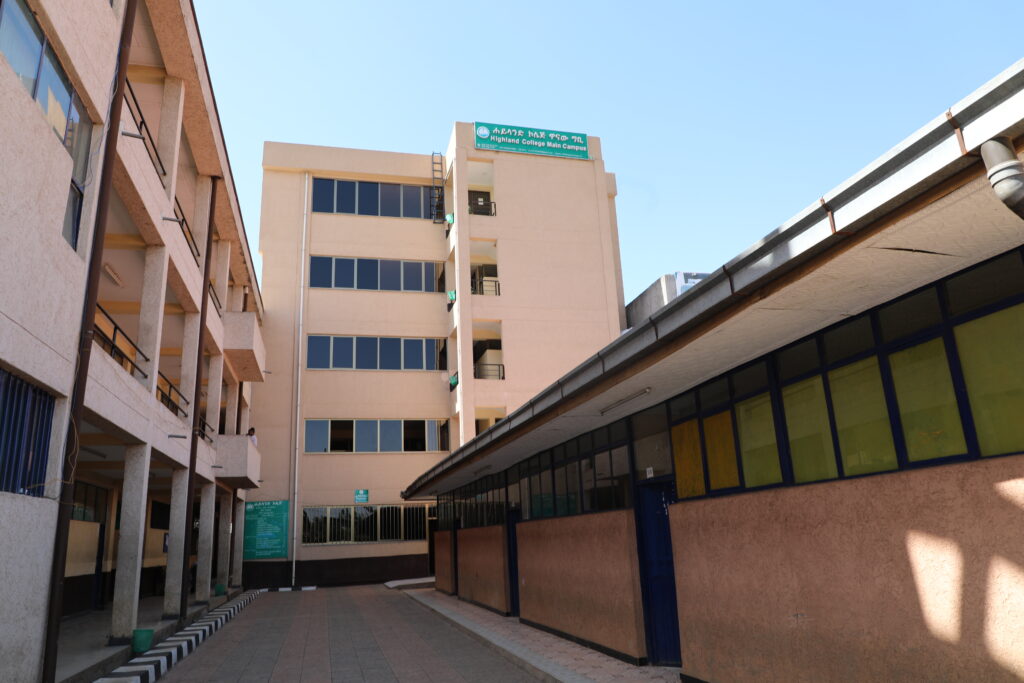A Brief history of HLC

A Brief History of Highland College
Highland College (HLC) is located in the beautiful city of Bahir Dar and
at the shore of Lake Tana and established by a team of professionals who have many years of teaching experience at university and business consultancy service. Some of the share members of HLC are PhD holders and all others are at master level in different disciplines.
HLC started its journey in 2003 by providing teachers training program at certificate level followed by diploma.
Starting from 2006 E.C, the College has upgraded its training into
undergraduate programs in various fields of study in regular, extension and distance programs in its own building at Bahir Dar and Injibara campuses. Currently, the college admitted more than 2000 students in 12 programs (six degrees and six TVET programs in business, health science and IT) in Bahhir Dar and Injibara campuses. So far, more than 16,000 students graduated from our college in different programs with high rate of graduate employability. We also recieved several positive feedbacks from employers of our graduates which is the source of our energy and inspiration.
More than 123 students who have different social problems but with outstanding academic achievements received free scholarship from the College.
In monetary values, this is estimated to be about 6million Ethiopian Birr. Besides, various types of donations have been given to private individuals as well as government entities and thus the College is trying its best to discharge its social responsibilities.
HLC held the first ever National Conferences with the theme of “Private Higher Education for an Inclusive Development in Ethiopia on April 28, 2023.” The conference aims to demonstrate that private higher education institutions should prioritize research and community service in addition to teaching. The conference encourages teachers and students to gain awareness, knowledge, and experiences on research work, enhance education quality, contribute to the country’s development, and demonstrate that higher education institutions should prioritize research and community service.
Generally, the College strives to contribute substantially to the region, the nation and beyond through quality education, research and community service.
